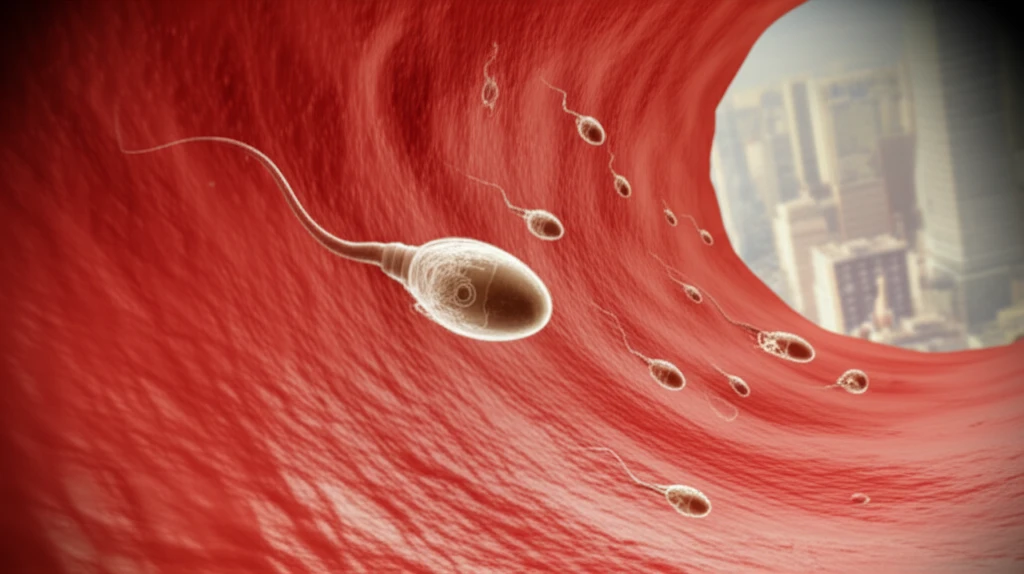
Leukemia's Hidden Impact: Unveiling Male Infertility Risks and Future Hopes
"New research sheds light on the connection between leukemia and male infertility, offering insights for patients and future fertility preservation."
Leukemia, a cancer affecting blood and bone marrow, is often associated with a range of well-known symptoms and treatments. However, emerging research suggests a less recognized impact: male infertility. While the primary focus remains on combating the disease itself, understanding its potential effects on reproductive health is crucial for comprehensive patient care.
Spermatogenesis, the complex process of sperm production, relies on a delicate balance of hormones and cell interactions within the testes. Leukemia and its treatments can disrupt this balance, potentially leading to reduced sperm count, motility issues, and other abnormalities. This can be particularly concerning for younger patients who may wish to have children in the future.
This article explores the intricate relationship between leukemia and male infertility, providing an overview of the current research, potential mechanisms, and strategies for preserving fertility. By understanding these connections, patients and healthcare providers can make informed decisions about treatment and family planning.
How Does Leukemia Impact Sperm Production?

Spermatogenesis, the creation of sperm, is a finely tuned process involving the proliferation and differentiation of spermatogonial stem cells (SSCs). These cells mature into sperm through various stages influenced by hormones and the testicular microenvironment. Leukemia can interfere with this process in several ways:
- Direct Infiltration: Leukemia cells can infiltrate the testes, potentially disrupting the normal cellular environment and affecting sperm production directly.
- Cytokine Disruption: Leukemia can trigger the release of cytokines, signaling molecules that can disrupt the delicate balance needed for healthy spermatogenesis.
- Systemic Inflammation: The disease can cause systemic inflammation, which may affect testicular function.
- Treatment Side Effects: Chemotherapy and radiation, while crucial for treating leukemia, can also damage SSCs and impair sperm production.
Looking Ahead: Preserving Hope for the Future
While the impact of leukemia on male fertility presents significant challenges, ongoing research and proactive fertility preservation strategies offer hope for the future. Understanding the specific mechanisms by which leukemia affects spermatogenesis is crucial for developing targeted therapies and interventions. Options like sperm cryopreservation, testicular tissue cryopreservation, and hormonal therapies can help patients preserve their fertility and increase their chances of having children after treatment.
